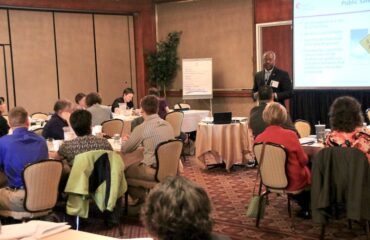Most of the discussion after the recent death of Justice Scalia has been about the appointment of a new justice to the U.S. Supreme Court and the likelihood of Senate Republicans confirming that individual. However, what happens to the Supreme Court cases that have already been heard have not yet been released? And what about the ones that will be heard before a new justice can be appointed and confirmed?
An Internal Matter

The internal workings of the Court are often kept hidden, but some things are known and others we can speculate about. As to the first question, the short answer is it depends on where the Supreme Court cases are in the judgment process. At one extreme are cases that have already been decided, opinions written, and sent to the printer, but not yet released publicly. Here the Court is likely to just release the opinions of all nine justices, including any penned by Justice Scalia. If Justice Scalia wrote the majority opinion, the Chief Justice or another justice could read it from the bench, if need be. Historically, there have been occasions when the Court removed the deceased justice’s name from that opinion and issued it per curiam [without an author].
The more interesting question is what to do with cases that are somewhere in the process of decision short of final resolution. In these cases, the Court has several options, and the reasons for and likelihood of its choices are often opaque. In cases in which the majority has greater than five votes, or Justice Scalia was in the minority with three others or less, the Court can simply decide to issue an opinion with eight members. It can reassign any opinions being written by Justice Scalia. Those cases have precedential value like any other Court decision.
In A Close Case
For opinions in which the vote now stands at 5-4, with Justice Scalia in the majority, his death deadlocks the Court at 4-4. If the Court proceeds on that basis, the decisions of the lower courts being appealed are automatically “affirmed by a divided Court”, but without reasons or the precedential value of a Supreme Court judgment. If they are 4-4 decisions, that would leave the Texas abortion restrictions in place, permit public employee unions to still collect the equivalent of dues from non-members, and block President Obama’s Executive Order relieving certain immigrants from deportation, for example. It would leave the challenge to the University of Texas’s affirmative action plan to be decided by seven justices, as Justice Kagan recused herself. Without serving as precedent, those affirmances will not finally resolve these issues. Significantly, a 4-4 decision would also leave the consolidated challenges to the contraception coverage provisions of the Affordable Care Act with different rulings depending on where you are. Some appellate courts have upheld those provisions, others not.

Looking to the Future
To avoid an automatic affirmance, the Court can set cases for reargument in the next term, hoping that there will be nine justices to hear and decide cases. Given that the Presidential election is in November and the inauguration is in January, while the Court’s next term begins the first Monday in October, there is no certainty that this solution will be effective. This is also the problem with cases coming to the Court in its 2016-2017 Term, if a replacement has not yet been selected by October.
What do you think?
Get more articles like this
in your inbox
Subscribe to our mailing list and get the latest information and updates to your email inbox.
Thank you for subscribing.
Something went wrong.






